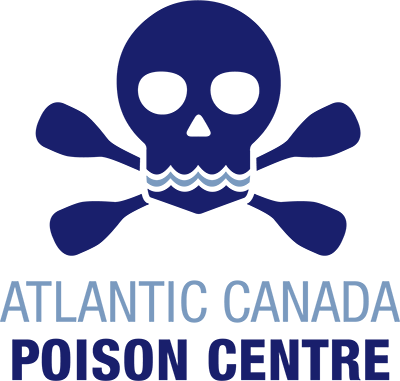
Atlantic Canada Poison Centre
Antidote Kit Manual
1-800-565-8161 or 902-470-8161 | atlanticcanadapoisoncentre.ca
Last updated: 03/2023
Antidote
Pediatric
Physostigmine
Anticholium; 0.4 mg/mL (2 mg / 5 mL amp) physostigminsalicylat
ALERT: Contact the Atlantic Canada Poison Centre before using physostigmine.
Indications
- Agitation and delirium due to anticholinergic toxicity
- Contraindicated in presence of:
- TCA overdose
- QRS widening (>100 ms), QTc > 500 ms, or any other cardiac conduction abnormality (AV or intraventricular)
- Generally not recommended for mixed drug or unknown poisoning.
- Often used in conjunction with benzodiazepines. The use of physostigmine may reduce the need for high doses of benzodiazepines.
Dosage
- IV Direct: 0.02 mg/kg (maximum 0.5 mg) IV over 5 minutes
- Repeat dose as needed every 10 minutes until desired clinical effect (maximum 2 mg in the first hour)
- Additional doses may be required for relapse after initial clinical improvement due to short duration of action of physostigmine
Administration
ALERT: Atropine should be available at the bedside and titrated to effect should excessive cholinergic toxicity develop. A dose of atropine at half the physostigmine dose is recommended.
- IV Direct: Administer undiluted solution (0.4 mg/mL)
- Doses less than 0.2 mg (0.5 mL) can be diluted with sodium chloride 0.9% to a total volume of 0.5 mL to facilitate administration.
- Onset of action occurs between 5 and 10 minutes after IV administration and the duration varies between 30 min and 5 hours depending on the severity of the anticholinergic poisoning to be reversed. Additional doses of physostigmine may be required.
- NOTE: To minimize drug wastage, it is recommended that two doses be immediately prepared using the opened ampoule.
Monitoring
- Cardiac monitoring
- Neurological examination
Endpoint of therapy
Sustained resolution of agitation and delirium.
Compatibility, Stability
- Compatible with sodium chloride 0.9%.
- Protect from light.
Potential Hazards of Administration
- Muscarinic cholinergic effects such as bradycardia, atrioventricular block, asystole, nausea, vomiting, miosis, salivation, bronchorrhea, bronchospasm.
- Generalized convulsions, muscle weakness and fasciculation if there is significant stimulation of nicotinic cholinergic receptors.
- Rapid administration may cause bradycardia, hypersalivation leading to respiratory difficulty, and seizures.
- Use caution in patients with underlying conditions including reactive airway disease, peripheral vascular disease and intestinal or bladder obstruction.
Suggested stocking: 4 mg (2 x 2 mg vials)


